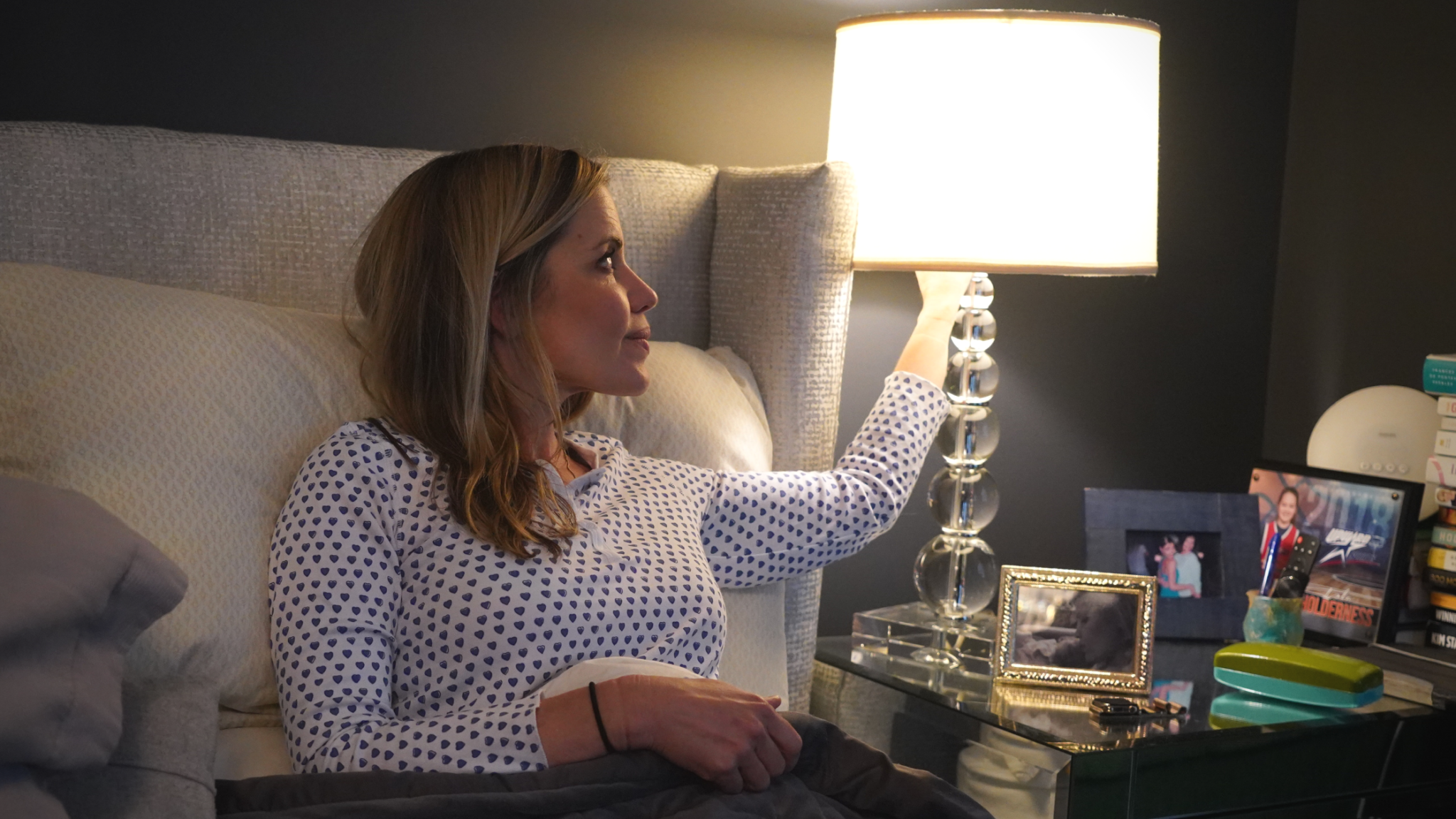When was the last time you had a truly knockout night’s sleep? Like, a Disney-princess-with-a-spell-on-them night of sleep? [*checks calendar*] For me, sleeping well takes a lot of work. Half the battle, I’ve learned, is making sure our bedroom isn’t part of the problem.
Whether you sleep alone or with a partner, I’ve rounded up my favorite ways to make your bedroom actually conducive to sleep.
Set the best temperature for rest.
I’ve always said, one of the biggest arguments in our marriage is about the temperature of the house. During the day, I don’t mind it being pretty warm (I grew up in Florida, I love the heat. Don’t hate.) But feeling warm at night isn’t ideal even for me. My husband would be thrilled to sleep on a block of ice, but most doctors recommend setting your thermostat between 60 and 67 degrees Fahrenheit at nighttime, when your own body temperature decreases by a couple of degrees as well.
Choose bedding that keeps you cool.
Now that your room is nice and chilly, you want to make sure your bed itself isn’t making you overheat. Higher thread count sheets may make you feel oh so fancy, but they actually inhibit air circulation which could be why you wake up sweating. Look for a thread count under 300 and materials like lyocell (made from eucalyptus trees) to keep you cool all night long.
Consider your air quality.
Ever wake up with a headache? You don’t have a cold or the flu, but your throat feels scratchy and your nose is running? The cause may be allergens in the air and a lack of humidity. Adding a humidifier will keep the nasal passages moist to prevent irritation. An air purifier, like this one, can also help clean the air.
Ditch the tech.
Technology in the bedroom winds our brains up when we should be winding down. The blue light emitted from your phone (along with the compulsive need to check it) could be keeping you from sleeping deeply. Those double taps can wait until morning. A television may also encourage you to stay up longer. Trust me, you’ve seen that episode of Friends before.

Drown out the distractions.
I’m someone who is always sleeping with at least one ear open (if you’re a parent, you get it). A perfectly silent room means any disturbance, from Penn breathing to the heater kicking on can wake me up. A white noise machine will drown out the little sounds that can jar us out of a deep sleep (and make us want to push our partners onto the floor).
Block out the light.
Darkness is essential for the body to produce melatonin, that wonder hormone that helps us achieve REM sleep. Without it, our bodies never totally “power down” when we’re sleeping. A sleeping mask and light-blocking curtains are two great ways to keep your bedroom dark. To help you awaken more gently in the morning, you can use a sunrise alarm clock. We painted our room a very dark gray and it’s almost like a cave at night. I love it! Now when we travel (remember traveling?) if the room is a bright white, I struggle falling asleep.
Sleeping well impacts our health in so many ways. If you listened to this podcast, you know we’re not opposed to getting some space for better sleep. What are your sleep secrets? Share them in the comments.
Note: Some of the items in this blog include Amazon Affiliate and other links which earn a small commission.




